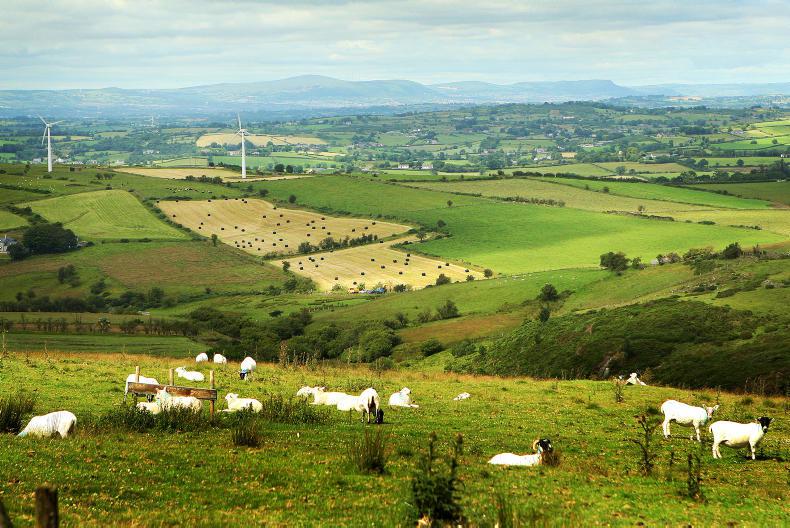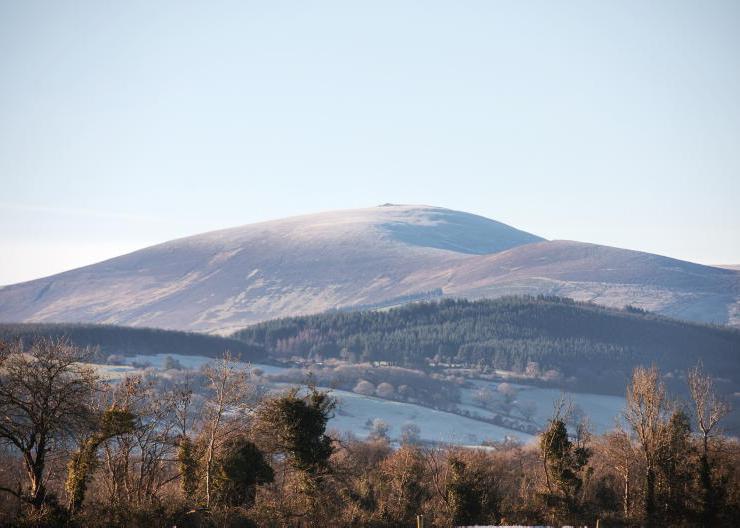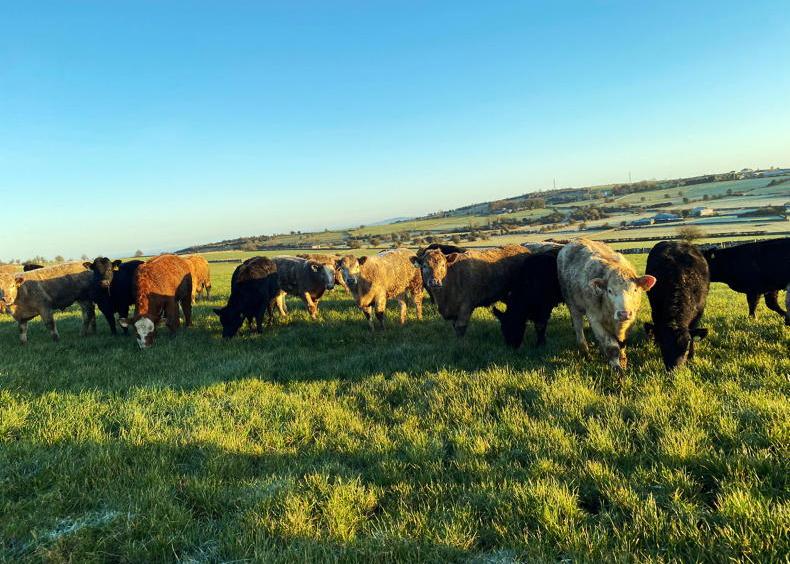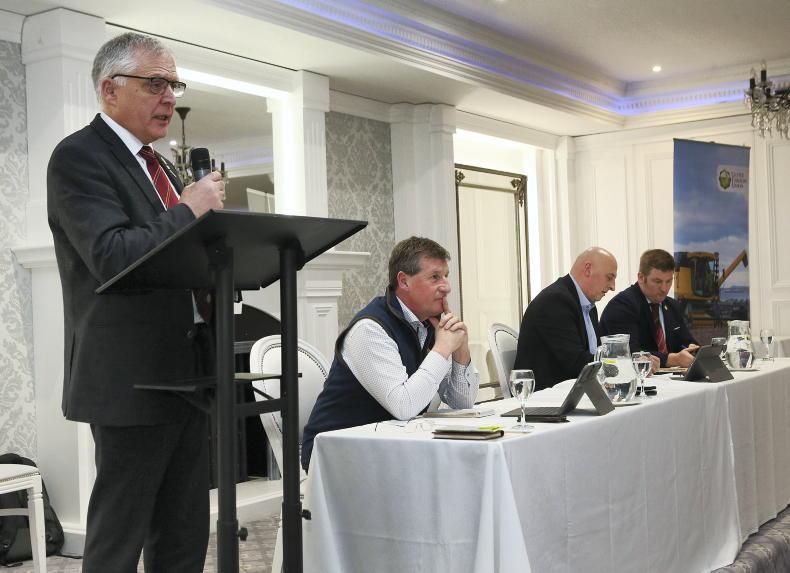Officials in DAERA are willing to make changes to the Department’s climate change bill and are keen to find compromise with the private member’s bill brought by Green party leader Clare Bailey, DAERA director of environmental policy, Colin Breen told MLAs last Thursday.
“We are not opposed to any reasonable legislative amendment,” said Breen, who confirmed that several meetings have taken place with Green Party representatives.
“I did believe we had the beginnings of a compromise which would involve incorporating a number of elements of the private member’s bill, with the intention that it is not moved to the next stage,” said Breen.
However, despite Minister Poots writing to Clare Bailey on 17 September seeking her agreement, no response had been received by last Thursday’s meeting.
The sticking point continues to be the 2045 net zero carbon emissions target in the Clare Bailey bill, as compared to the target of at least an 82% reduction in emissions by 2050 in the DAERA alternative.
As an official, my advice has to be to follow the evidence
In his evidence, Breen repeated advice given at earlier meetings with MLAs that the net zero target is simply not based on best science or advice as offered by the UK Climate Change Committee.
“As an official, my advice has to be to follow the evidence. Regardless of who my Minister is, I would be giving the same advice. It would be highly damaging to our economy to pursue a net zero target for no global benefit to reducing emissions. The costs of pursuing this un-evidenced target would be tens of billions,” he said.
Breen questioned whether the UK Treasury would actually pay for this as the target goes beyond what is required, and reminded MLAs that the time period to get any bill into law in the current Assembly mandate is “frighteningly short”.
Deliverable
Earlier in the session with MLAs, Minister Poots urged Assembly colleagues to focus on what is actually deliverable.
“I want to get to 100% as quickly as possible, but in life, I would tend to air on the side of caution, that you under-promise and over-deliver,” he said.
Agri-food industry support DAERA bill
Members of the Stormont Agriculture committee were left in no doubt last Thursday that the NI agri-food industry opposes a net zero carbon emissions target by 2045 as set out in the private member’s bill brought by Clare Bailey.
You have to decide between allowing the NI agri-food sector to continue to produce high-quality food or sacrificing farming and processing businesses
Instead, there was strong support for the DAERA bill currently going through Stormont that would require emission reductions of at least 82% by 2050 as part of the UK’s overall net zero target by that date.
“You have to decide between allowing the NI agri-food sector to continue to produce high-quality food or sacrificing farming and processing businesses and their jobs on the altar of achieving miniscule additional environmental benefit,” said Dairy Council chief executive Mike Johnson.
He told MLAs that his processor members were being pulled in different directions by customers around climate change targets, so it was vital to know what the target is, allowing the industry to set out the steps of how to get there. “We need the leadership that only legislation can provide. It is not helpful having two bills,” he said.
MLAs were urged to work to find compromises between the two bills, and to do so quickly, but ultimately, were reminded that the target must be based on expert advice.
“Don’t pull the feet from out under the industry by setting unrealistic targets that cannot be achieved,” suggested LMC chief Ian Stevenson.
GHG Partnership to be given new role
DAERA is to re-engage with the Greenhouse Gas Implementation Partnership, a group made up of industry and environmental organisations, which was established over 10 years ago to promote efficient production on farms.
We are proposing that sector specific advisory committees are established to report
The group produced a report in 2014, and then an implementation plan in 2016, to encourage the adoption of efficiency measures on farms to reduce the carbon intensity of production.
Giving evidence to MLAs last Thursday, UFU deputy president David Brown suggested that the group could have a role in assisting the UK Climate Change Committee (CCC), the body which advises the UK government on climate targets and policy.
“We are proposing that sector specific advisory committees are established to report and advise on specific economic, environmental and social circumstances particular to NI,” Brown said.
Livestock number cut not in UK net zero plan
The UK government’s new net zero strategy does not include plans to either cut livestock numbers or reduce the consumption of meat and dairy products.
The plan, which was published on Tuesday, states that “improved and innovative farming practices” will help the agriculture industry cut emissions up to 2035.
The plan is to plant 30,000 hectares of new woodland across the UK every year from 2025 onwards
The recommendation from the UK government’s advisory body, the Climate Change Committee, for meat and dairy consumption to fall by 35% by 2050 is not included in the document.
However, the government wants to see a “sustainable increase” in tree-planting, peatland restoration and perennial energy crops.
The plan is to plant 30,000 hectares of new woodland across the UK every year from 2025 onwards, and to have 35,000 hectares of peatland restored by the middle of this decade.
Unlike the current system for recording greenhouse gas emissions, agriculture has been included along with the land use and forestry sector in the new net zero strategy. If this approach is used going forward, agriculture will be attributed with lower emissions when a farmer plants trees on agricultural land.
Read more
Chestnutt not backing down on climate claims
Net zero target means 85% livestock cut
Officials in DAERA are willing to make changes to the Department’s climate change bill and are keen to find compromise with the private member’s bill brought by Green party leader Clare Bailey, DAERA director of environmental policy, Colin Breen told MLAs last Thursday.
“We are not opposed to any reasonable legislative amendment,” said Breen, who confirmed that several meetings have taken place with Green Party representatives.
“I did believe we had the beginnings of a compromise which would involve incorporating a number of elements of the private member’s bill, with the intention that it is not moved to the next stage,” said Breen.
However, despite Minister Poots writing to Clare Bailey on 17 September seeking her agreement, no response had been received by last Thursday’s meeting.
The sticking point continues to be the 2045 net zero carbon emissions target in the Clare Bailey bill, as compared to the target of at least an 82% reduction in emissions by 2050 in the DAERA alternative.
As an official, my advice has to be to follow the evidence
In his evidence, Breen repeated advice given at earlier meetings with MLAs that the net zero target is simply not based on best science or advice as offered by the UK Climate Change Committee.
“As an official, my advice has to be to follow the evidence. Regardless of who my Minister is, I would be giving the same advice. It would be highly damaging to our economy to pursue a net zero target for no global benefit to reducing emissions. The costs of pursuing this un-evidenced target would be tens of billions,” he said.
Breen questioned whether the UK Treasury would actually pay for this as the target goes beyond what is required, and reminded MLAs that the time period to get any bill into law in the current Assembly mandate is “frighteningly short”.
Deliverable
Earlier in the session with MLAs, Minister Poots urged Assembly colleagues to focus on what is actually deliverable.
“I want to get to 100% as quickly as possible, but in life, I would tend to air on the side of caution, that you under-promise and over-deliver,” he said.
Agri-food industry support DAERA bill
Members of the Stormont Agriculture committee were left in no doubt last Thursday that the NI agri-food industry opposes a net zero carbon emissions target by 2045 as set out in the private member’s bill brought by Clare Bailey.
You have to decide between allowing the NI agri-food sector to continue to produce high-quality food or sacrificing farming and processing businesses
Instead, there was strong support for the DAERA bill currently going through Stormont that would require emission reductions of at least 82% by 2050 as part of the UK’s overall net zero target by that date.
“You have to decide between allowing the NI agri-food sector to continue to produce high-quality food or sacrificing farming and processing businesses and their jobs on the altar of achieving miniscule additional environmental benefit,” said Dairy Council chief executive Mike Johnson.
He told MLAs that his processor members were being pulled in different directions by customers around climate change targets, so it was vital to know what the target is, allowing the industry to set out the steps of how to get there. “We need the leadership that only legislation can provide. It is not helpful having two bills,” he said.
MLAs were urged to work to find compromises between the two bills, and to do so quickly, but ultimately, were reminded that the target must be based on expert advice.
“Don’t pull the feet from out under the industry by setting unrealistic targets that cannot be achieved,” suggested LMC chief Ian Stevenson.
GHG Partnership to be given new role
DAERA is to re-engage with the Greenhouse Gas Implementation Partnership, a group made up of industry and environmental organisations, which was established over 10 years ago to promote efficient production on farms.
We are proposing that sector specific advisory committees are established to report
The group produced a report in 2014, and then an implementation plan in 2016, to encourage the adoption of efficiency measures on farms to reduce the carbon intensity of production.
Giving evidence to MLAs last Thursday, UFU deputy president David Brown suggested that the group could have a role in assisting the UK Climate Change Committee (CCC), the body which advises the UK government on climate targets and policy.
“We are proposing that sector specific advisory committees are established to report and advise on specific economic, environmental and social circumstances particular to NI,” Brown said.
Livestock number cut not in UK net zero plan
The UK government’s new net zero strategy does not include plans to either cut livestock numbers or reduce the consumption of meat and dairy products.
The plan, which was published on Tuesday, states that “improved and innovative farming practices” will help the agriculture industry cut emissions up to 2035.
The plan is to plant 30,000 hectares of new woodland across the UK every year from 2025 onwards
The recommendation from the UK government’s advisory body, the Climate Change Committee, for meat and dairy consumption to fall by 35% by 2050 is not included in the document.
However, the government wants to see a “sustainable increase” in tree-planting, peatland restoration and perennial energy crops.
The plan is to plant 30,000 hectares of new woodland across the UK every year from 2025 onwards, and to have 35,000 hectares of peatland restored by the middle of this decade.
Unlike the current system for recording greenhouse gas emissions, agriculture has been included along with the land use and forestry sector in the new net zero strategy. If this approach is used going forward, agriculture will be attributed with lower emissions when a farmer plants trees on agricultural land.
Read more
Chestnutt not backing down on climate claims
Net zero target means 85% livestock cut










SHARING OPTIONS